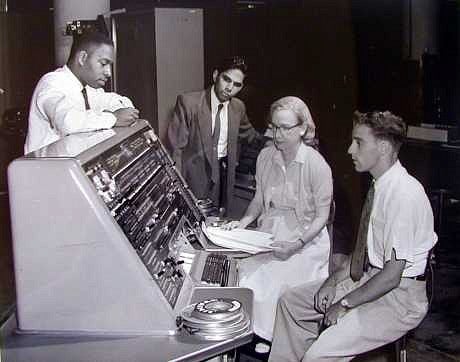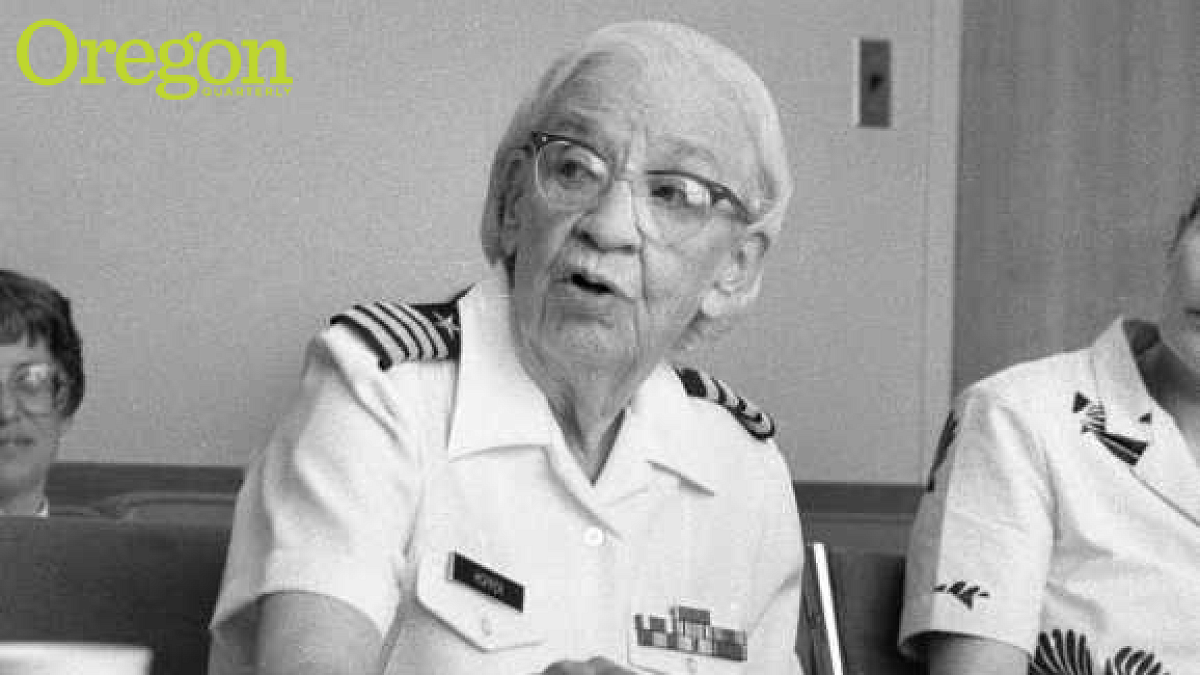After three decades of research, countless hours in lonely archives, and sleuthing trips zigzagging across the country, Jeanne LaDuke, PhD ’69, and her writing partner, Judy Green, have coauthored Pioneering Women in American Mathematics: The Pre-1940s PhDs, an insightful peek into the lives of the women who led an intellectual vanguard. LaDuke, who graduated with her own math PhD from the University of Oregon, is no stranger to the particular challenges and rewards of studying and working in a field often thought to be dominated by male minds.
“In the 1950s, just after World War II, the percentage of women earning PhDs in mathematics was very low, about 5 percent. For virtually all of us in the field during my generation, that was our background: Women were barely visible. The assumption was that was the normal state because that’s what we had lived through,” LaDuke explains. Yet she discovered that women played an important role in American mathematics. “One thing we hope for by setting the record straight is to show that this period in the ’50s and ’60s was not typical.”
In fact, 14 percent of the PhDs awarded in mathematics before 1940 were earned by women—this in a time when women were denied entrance to many of the country’s universities. LaDuke and Green detail the academic paths, careers, and family lives of these 228 women using college archives, census data, academic publications, personal diaries, and face-to-face conversations.
Like many of the women profiled in Pioneering Women, LaDuke didn’t come from a privileged background. While living in southern Indiana, she attended a rural grade school and helped take care of the family’s 300-acre corn, wheat, and soybean farm. During the evenings, she often stood in the kitchen at a large slate board her father salvaged from a falling-down schoolhouse, scratching out arithmetic problems while he scrutinized her multiplication and division.
Education was a family priority—both her parents attended college. LaDuke’s aunt Mabel taught high school math and brought the curious girl math puzzles whenever she visited from Chicago. “Someday,” LaDuke remembers her aunt telling her, “you will be able to do calculus.”
Her family’s strong support nurtured her love of numbers and ambition to attain a thorough education. Having intelligent and educated women as role models also shaped LaDuke’s view of the world. “It’s almost as if I didn’t know that girls weren’t supposed to do math until it was too late,” she says with a laugh. “Later, I was surprised if I ran into barriers. Then, of course, as I started looking back on things, and I had more historical sense, I became quite aware of the obstacles [facing women].”

While an undergraduate attending DePauw University in Greencastle, Indiana, in the ’50s, LaDuke spent school vacations with her roommate, Virginia (Walsh) Knight, MA ’62, PhD ’67, a math major from Portland. She and Knight hiked and camped around Oregon, and LaDuke fell in love with the state. “I was determined to come back at some point,” she says. LaDuke fulfilled that teenage vow in 1966 when she began her doctoral work at the University of Oregon.
“Oregon in the ’60s was really fun,” she recalls. “I found the University hospitable to all of its graduate students in the math department. The standards were high, demanding, but I felt a lot of encouragement and support. The faculty wanted us to succeed.”
Life beyond campus was rich, too. LaDuke took up snowshoeing, caught “a bit of a ski bug,” started jogging, and watched Steve Prefontaine compete at high school track meets. She also mixed with the motley cross-section of Eugene that congregated near campus at Max’s Tavern: fraternity brothers, attorneys, and members of the black power movement. And math graduate students assembled around the underlit bar’s wooden tables to study scribbled notes over pints. “It was very lively, and when we were studying for exams or orals, we would do math or pose questions or discuss things that would be helpful for the tests,” LaDuke says. “Not everything happened in the classroom or in a structured setting.”
Her work on Pioneering Women provided LaDuke some unexpected and gratifying experiences. When scheduled to speak at the University of Wisconsin, Madison in 1997, she looked up one of the women she was profiling, Margarete Hopkins, who earned her PhD from Wisconsin in 1935. LaDuke invited Margarete, then eighty-four and in ailing health, and the elderly woman’s daughter and granddaughter to her lecture.
Margarete played a starring role in the speech. “The granddaughter and daughter were utterly delighted. I list that among the most satisfying experiences in writing the book,” LaDuke says.
Margie Duwe—Margarete’s granddaughter, who was fourteen when she attended the lecture and is now a science teacher—credits LaDuke with recording her family’s heritage and validating her grandmother’s achievements.
“I knew my grandmother had taught math, and I knew she was very good at it. But I didn’t realize the extent of the story. Now, that history is written down,” Duwe says. Margarete Hopkins died a year after LaDuke’s Wisconsin appearance.
LaDuke particularly empathized with the challenges women math PhDs have had in finding good jobs, as she too encountered obstacles. Shortly after earning her master’s degree, LaDuke applied for teaching positions at two universities. A detail she considered irrelevant—that they were both men’s colleges—didn’t escape the hiring faculty. One school’s snooty response surprised her. “The letter said, ‘Apparently you don’t realize that this school is only for men, and we only hire male faculty.’ It didn’t occur to me that they wouldn’t hire me because I was a woman.”
Similarly, many of the women who earned PhDs before 1940 were refused employment because of their sex or funneled into less prestigious and lower-paying positions. Still, over long and productive careers they dispelled stereotypes about women’s inability to do math by their very accomplishments—teaching college and high school, writing books and scholarly articles, mentoring aspiring mathematicians, directing dissertations, and presenting talks at professional meetings.
Marie Vitulli, a longtime University of Oregon math professor, observes, “There have been women who made huge contributions in mathematics. Today, they’re some of the best in the field, as you would expect; however, there are still barriers.” One of those contributors is Vitulli herself, who serves on the executive committee of the Association for Women in Mathematics. “We’ve made improvements, but there is still a long way to go.”
After a forty-year teaching career, most recently at DePaul University in Chicago, seventy-two-year-old LaDuke has retired. Still, her influence continues.
She recently had dinner with a former student, a retired high school math teacher, who remarked on LaDuke’s impact on her life. “She claimed that I mattered,” LaDuke says, “that I was a role model.” Pioneering Women in American Mathematics pays homage to 228 other mentors and, in the process, to the career they made possible—LaDuke’s legacy in mathematics, education, and history.
—By Catherine Ryan '06


